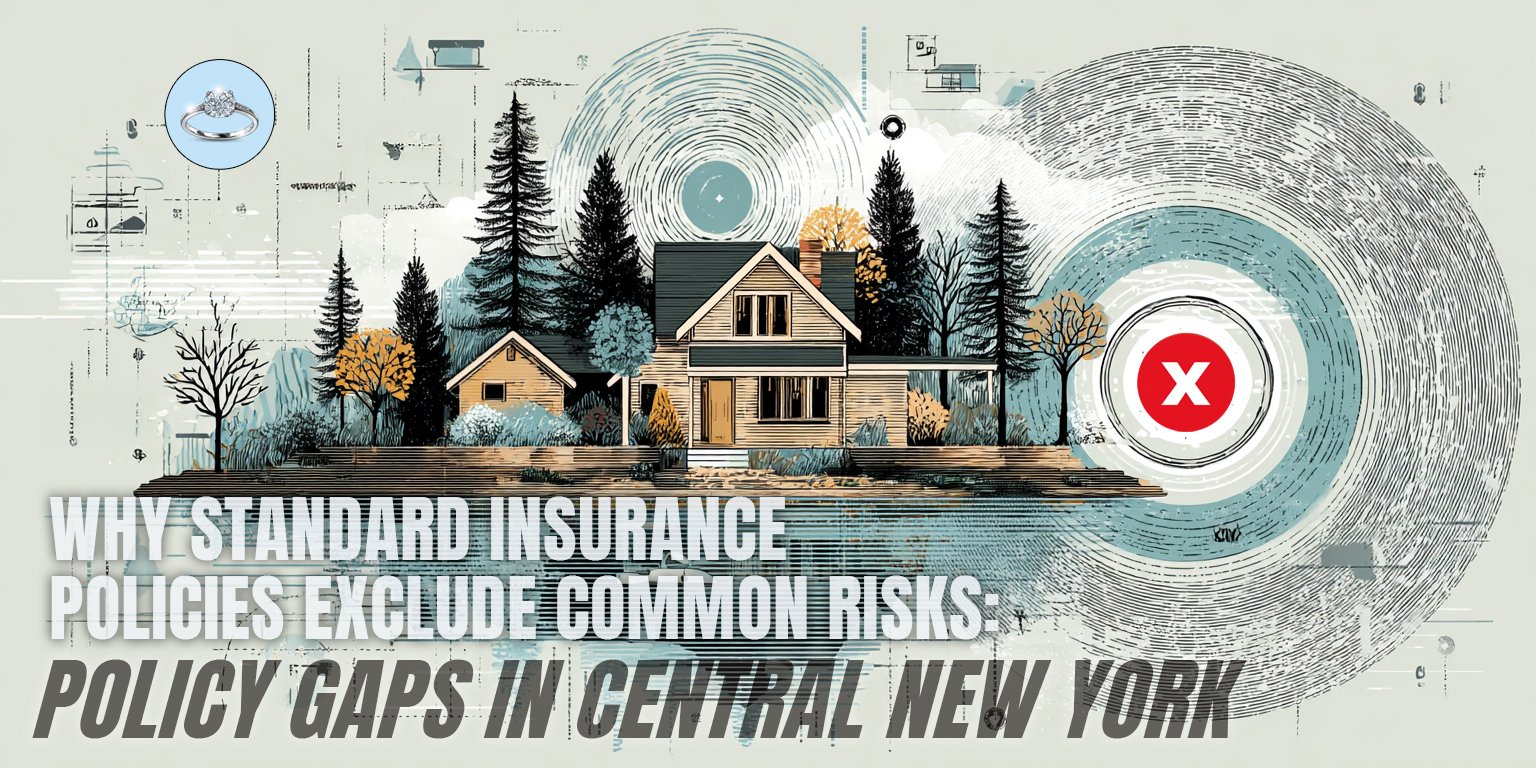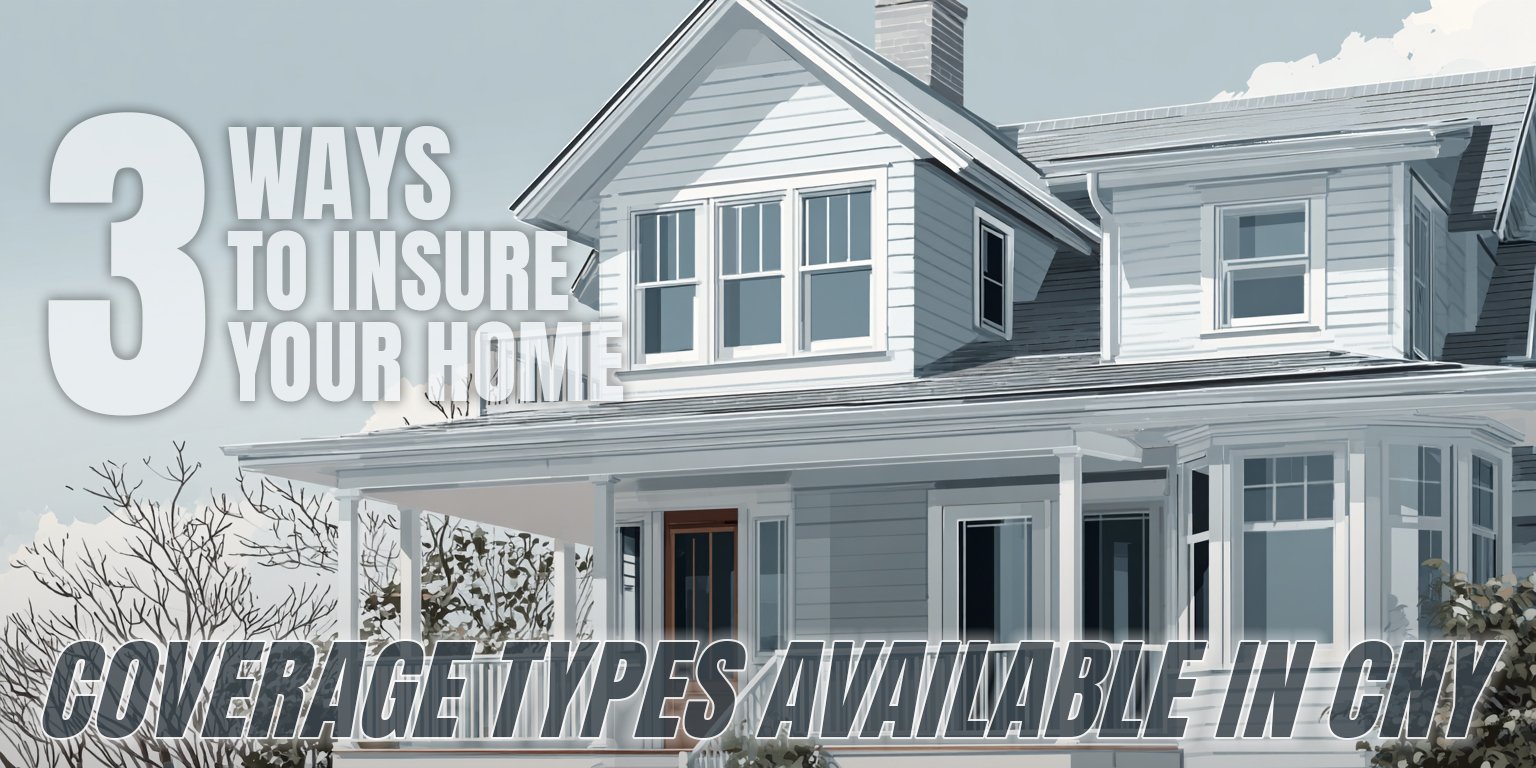Is Loss of Use Worth it On a Home and Renters Policy?
September 16th, 2024
4 min read

As a Central New York homeowner or renter, you've worked hard to create a comfortable living space. But have you considered what would happen if a disaster forced you out of your home? Many people don't realize they're vulnerable to significant financial strain until it's too late, leaving them scrambling for solutions in an already stressful situation.
At the Horan insurance agency, we understand your concerns. You want to protect your lifestyle and finances, but the complexities of insurance policies can be overwhelming. That's why we're here to shed light on a critical yet often overlooked aspect of your policy: loss of use coverage.
In this article, we'll explore why loss of use coverage is essential, how it safeguards your financial stability, and what you need to know to ensure you're adequately protected. We'll guide you through the potential pitfalls of insufficient coverage and show you how to stay ahead of unexpected living expenses, giving you the security and composure you deserve.
Understanding Loss of Use Coverage: Your Financial Safety Net After Disaster Strikes
Loss of use coverage, also known as additional living expenses coverage, is a crucial component of your insurance policy. It covers certain extra costs you incur if you can't live in your home due to a covered loss, such as
- temporary housing,
- additional food expenses, and
- extra transportation costs.
When disaster strikes and you're forced out of your home, this coverage kicks in to help maintain your standard of living. It works by reimbursing you for these extra costs, up to your policy limits, after you've been displaced due to a covered event.
There are two main types of loss of use coverage:
Time-Based Coverage
- Provides coverage for a specific time period, typically 12 months
- Some policies offer extensions up to 24 months
- Often preferred because you're dealing with time rather than running out of money
Percentage-Based Coverage
- Offers a percentage of your dwelling coverage, often around 40%
- Example: If your home is insured for $300,000, you might have up to $120,000 in loss of use coverage
The Homeowner's Perspective: Why Loss of Use Coverage is Essential for Property Owners
For homeowners in Central New York, loss of use coverage isn't just an add-on—it's a vital component of your financial security. Here's why:
Extended Displacement Risks: Preparing for Long-Term Rebuilding
In cases of severe damage, like a fire that affects more than 50% of your home, you could be out of your house for up to two years during repairs or rebuilding. That's a long time to maintain two households without financial support.
Ongoing Financial Obligations: The Bills That Don't Stop When Disaster Hits
Even when you're not living in your home, you're still responsible for:
- Mortgage payments
- Property taxes
- Homeowners insurance premiums
These costs don't disappear just because your home is temporarily uninhabitable.
 Increased Living Costs: The Hidden Expenses of Displacement
Increased Living Costs: The Hidden Expenses of Displacement
Temporary housing, especially for families, can be significantly more expensive than your usual mortgage payment. In areas with limited long-term housing options, like parts of Central New York, finding suitable accommodation can be challenging and costly.
Real-World Scenario: The Financial Impact of an 18-Month Displacement
Imagine your Baldwinsville home suffers extensive fire damage, requiring an 18-month rebuild. Without loss of use coverage, you'd be responsible for:
- Your mortgage (let's say $1,500/month)
- Rent on a temporary home ($2,000/month)
- Increased food costs ($500/month)
- Extra transportation expenses ($200/month)
Total additional monthly expenses: $2,200 Over 18 months: $39,600
With adequate loss of use coverage, these extra expenses are generally covered, allowing you to focus on rebuilding your home and life without the added financial stress.
The Renter's Perspective: Why Loss of Use Coverage Takes a Back Seat for Tenants
While loss of use coverage is crucial for homeowners, the situation changes dramatically when we look at renters policies. For tenants, this coverage is often considered not worth it at all. Here's why:
Limited Financial Impact: Why Renters Face Less Risk
Unlike homeowners, renters don't face the same level of financial obligations when displaced:
- No mortgage payments to worry about
- Property taxes and insurance aren't your responsibility
- Utility costs are typically lower or non-existent during displacement
Landlord Responsibilities: When Your Property Owner Takes the Lead
In many cases, landlords bear the brunt of the financial impact. They're often responsible for finding alternative accommodations, and your lease may be suspended or terminated in case of significant damage.
Included But Not Emphasized: The Hidden Benefit in Your Renters Policy
Interestingly, loss of use coverage is usually included in renters policies by default. You're not really paying for it, so in that sense, it's “worth it” because it's there if you need it, as a complimentary part of your policy.
Making the Right Choice: Tailoring Your Coverage to Your Living Situation
When it comes to insurance, one size doesn't fit all. Your needs as a homeowner in Baldwinsville will differ from those of a renter in Syracuse. Here's how to approach loss of use coverage:
For Homeowners: Maximizing Your Protection
- Review Your Current Coverage: Understand whether you have time-based or percentage-based loss of use coverage.
- Consider Extended Coverage: If available, opt for a policy that offers up to 24 months of coverage. Some carriers offer bundle options that increase coverage from 12 to 24 months along with other benefits.
- Assess Your Risk: Factors like the age of your home and local disaster risks should influence your decision.
- Calculate Potential Costs: Estimate what temporary housing and increased living expenses would cost in your area.
- Don't Overdo It: Typically, there's no need to add more loss of use coverage beyond what comes in standard policies or bundles. These are usually sufficient for most situations.
For Renters: Focusing on What Matters Most
- Understand Your Policy: Know what loss of use coverage is included in your renters policy, but remember it's not a significant factor in your coverage needs.
- Review Your Lease Terms: Carefully examine your lease agreement. Some leases may require you to continue paying rent for a specified period while the property is being repaired or rebuilt. In such cases, loss of use coverage could be more important than initially thought.
- Evaluate Your Needs: Consider factors like the stability of your living situation, local rental market conditions, and your lease obligations when assessing your need for loss of use coverage.
- Focus on Other Coverages: While loss of use coverage can be valuable, especially given lease considerations, still prioritize personal property and liability coverages in your renters policy, as these are typically highly relevant to your situation.
- Consult with Your Insurance Agent or Provider: Discuss your specific situation, including your lease terms, with your insurance agent to ensure you have appropriate coverage across all areas of your renters policy.
Secure Your Lifestyle by Choosing the Right Coverage
We've explored the ins and outs of loss of use coverage, from its critical importance for homeowners to its less significant role in renters policies. For homeowners in Central New York, this coverage is a crucial safety net. It can mean the difference between financial stability and significant strain during an already stressful time.
The right coverage gives you more than just financial protection—it offers composure and security when you need it most. Whether you're dealing with a minor repair or a major rebuild, knowing you have a safety net can make all the difference.
At Horan, we're committed to being your trusted resource in understanding and choosing the right coverage for your unique situation. We'll work with you to help ensure your policy provides the protection you seek, giving you confidence in your coverage.
Don't leave your future living situation to chance. Click the Get a Quote button below to start a conversation with our team.
Daniel is an accomplished content creator. He has been working in publishing for almost two decades. Horan Companies hired Daniel as its content manager in November 2022. The agency entrusted its messaging to him. Since then, Daniel has written insurance articles, service pages, PDF guides, and more. All in an effort to educate CNY readers. He's helping them understand the world of insurance so they can make informed decisions.
Topics:




























